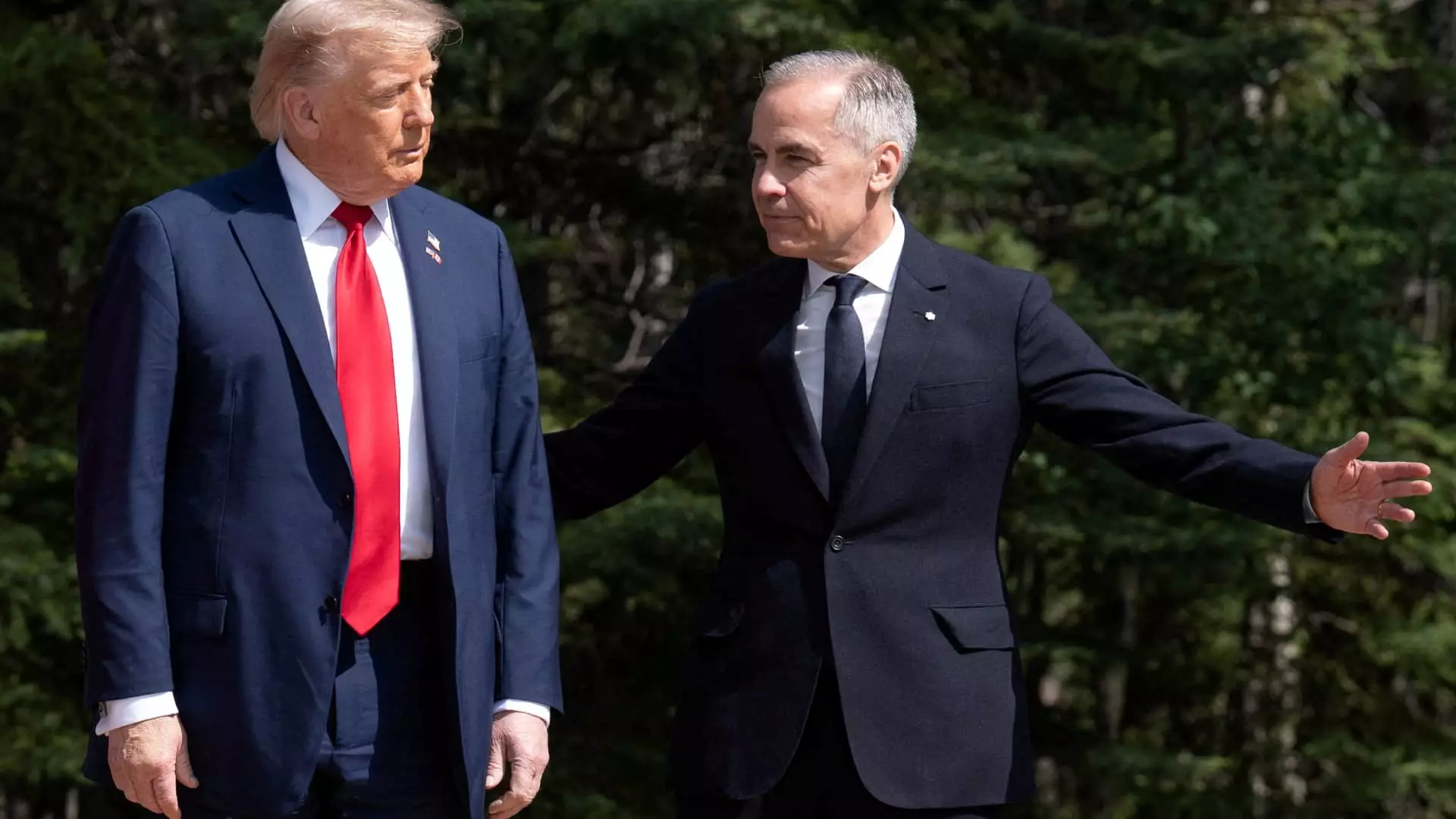Canada’s recent flirtation with the digital services tax (DST) was nothing short of a diplomatic and economic blunder. The idea behind imposing a 3% levy on large tech giants such as Amazon, Google, and Meta might have sounded politically appealing—holding corporations accountable in a world where digital profits often slip through traditional tax nets. Yet, the execution and timing were disastrous. The retroactive nature of the tax, covering revenues from 2022, was particularly reckless. It not only antagonized a crucial economic partner—the United States—but also jeopardized ongoing trade negotiations. This move exposed a shortsightedness in Canadian economic policy, prioritizing symbolic action over pragmatic diplomacy.
The Fallout With the United States: An Unnecessarily Provoked Crisis
The U.S. reaction was swift and harsh—President Trump’s abrupt announcement to end trade talks with Canada was a heavy-handed response, but one that Canadian officials largely invited by their obstinance. Ottawa’s initial refusal to pause the DST despite U.S. warnings lacked foresight and nuance. U.S. Treasury Secretary Scott Bessent’s condemnation of the tax as discriminatory against American firms wasn’t mere rhetoric; it underscored the real threat this unilateral tax posed to cross-border economic relations. Given that U.S.-Canada goods trade hit an astounding $762 billion last year, Canada’s DST was a reckless affront risking severe economic repercussions for the broader economy, beyond just tech companies.
A Missed Opportunity for Leadership in Global Tax Reform
It’s important to acknowledge the rationale behind digital services taxes. Governments worldwide face the challenge of ensuring multinational tech giants pay their fair share of taxes amid rapidly evolving business models. Canada’s DST reflected a broader frustration with outdated global tax frameworks. However, by opting for a unilateral and retroactive levy, Ottawa squandered its chance to lead constructively. Instead of pushing for a coordinated multilateral approach—something the international community, including the U.S., is grappling with—Canada’s strategy was inward-looking and confrontational. This not only isolated Canada but undermined trust and collaboration with key allies crucial for shaping fair and effective international tax standards.
Backpedaling: Correct but Too Little, Too Late
Canada’s recent retraction of the DST “in anticipation” of a new trade deal with the U.S. was the correct move, but one painfully overdue. Prime Minister Mark Carney and Finance Minister Francois-Philippe Champagne framed the rollback as a necessary step to resume negotiations and protect economic stability. While pragmatic, this reversal also revealed a lack of readiness and coherence in Canada’s economic diplomacy. A government that cannot anticipate the consequences of its own fiscal policies, let alone manage international fallout effectively, damages its credibility. Though they pledge to persist in securing a beneficial economic relationship with the U.S., the recent episode signals vulnerability rather than strength in Canada’s leadership on the global stage.
Center-Wing Liberalism Calls for Balanced Strategy
From a centrist liberal perspective, the episode is a cautionary tale about balancing national interests with international realities. Tax fairness and corporate accountability are legitimate concerns, and governments must act to protect public revenues in an era of globalization. Nonetheless, such measures must be implemented thoughtfully, in cooperation with global partners, to avoid counterproductive escalations. Canada’s DST saga highlights the need for diplomacy that is neither overly timid nor aggressively unilateral. Instead, a balanced approach rooted in multilateral engagement, economic pragmatism, and respect for complex trade dynamics is essential. Failure to reconcile these priorities risks undermining economic prosperity and political goodwill on both sides of the border.
The Road Ahead: Rebuilding Trust and Strategic Patience
The Canada-U.S. economic relationship is too vital for either side to allow disputes like the DST to erode it permanently. Moving forward requires Canada to adopt strategic patience—investing in international dialogue to modernize global tax rules, while simultaneously cultivating goodwill with its most significant trading partner. Symbolic acts like the DST may garner domestic political support momentarily, but they should never jeopardize long-term economic stability. The government’s willingness to rescind the tax is a positive sign, but rebuilding trust demands consistently sober policymaking that respects the interconnected nature of modern economies. Only by embracing measured, collaborative strategies can Canada position itself as a leader in both just taxation and resilient international relations.


Leave a Reply